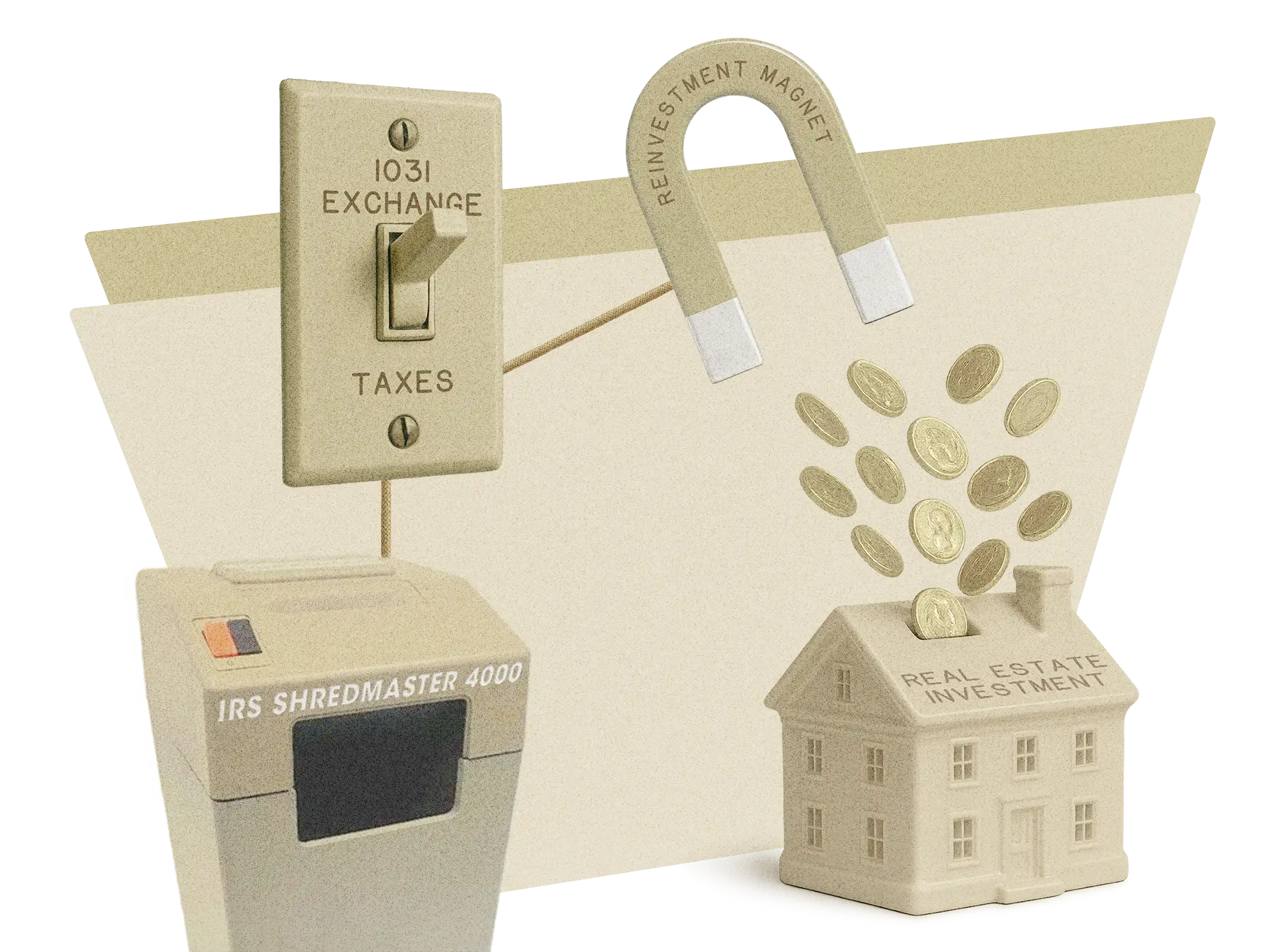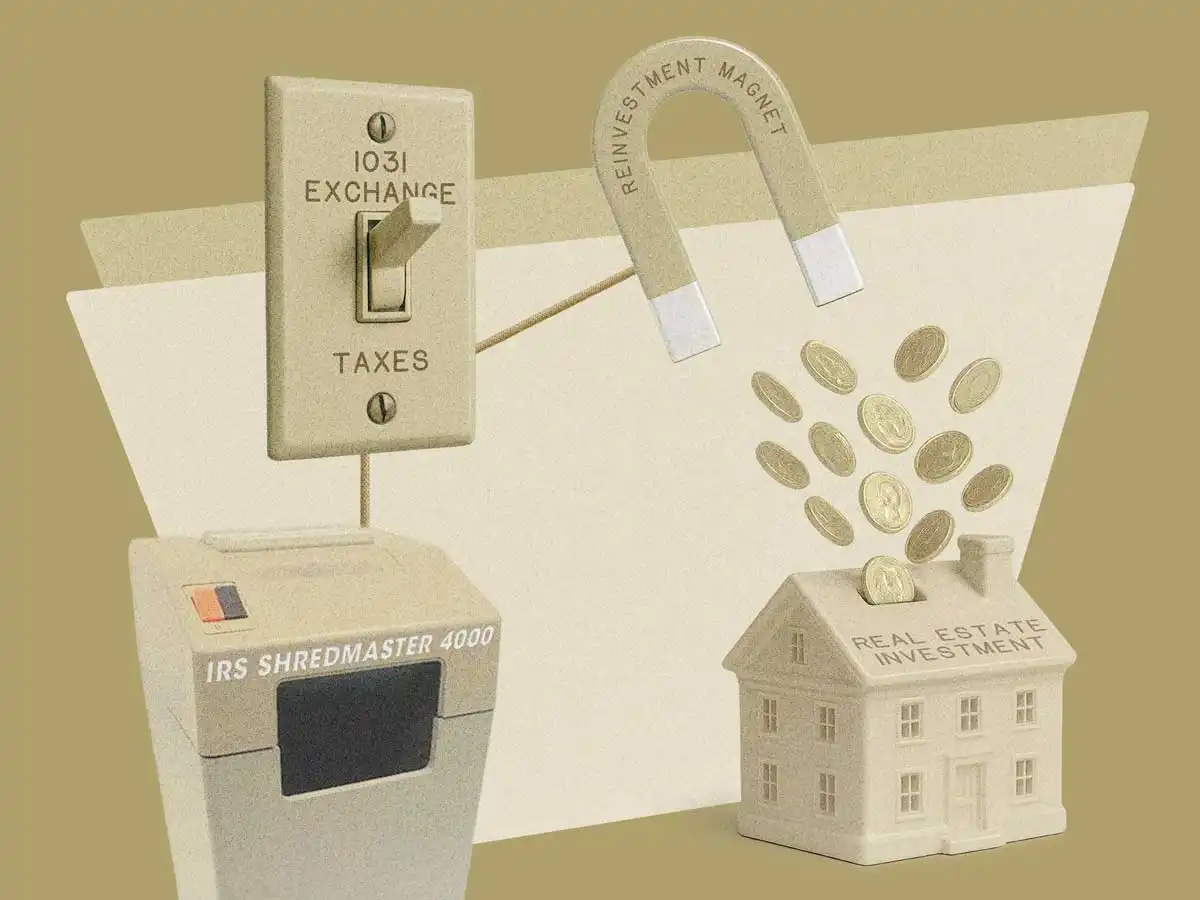A Powerful Real Estate Tax Strategy For Property Owners
Whenever considering selling a property, first talk to both a very experienced realtor and your tax advisor. Working with the right team can help defer taxes and take advantage of the many opportunities of investing in real estate — whether in a primary home, second home, or investment property.
Understanding What Qualifies For A 1031 Exchange
It is easy to confuse a 1031 exchange with the primary residence exemption. A primary residence doesn’t qualify for a 1031 exchange, but it has other tax-saving opportunities.
Every two years, an individual can sell a primary residence and receive up to $250,000 of gain tax-free, and married couples qualify for up to $500,000. It is not necessary to buy a replacement property. Even if you move out of your primary residence and rent it, it still qualifies for the tax exemption so long as it was the primary residence for two of the last five years — and even better, those two years do not have to be consecutive.

Do Second Homes Qualify For A 1031 Exchange?
Second homes also do not qualify for 1031 exchanges. However, there are strategies available to convert a second home into an investment property.
To qualify, some second homes are also rental properties and must be rented at least 14 days for fair market value. The owner cannot stay more than 14 days a year or 10% of the total number of nights rented.
What The 1031 Exchange Covers
The 1031 exchange applies to investment and business real estate only. It is quite flexible and allows for any real estate investment or business property to be traded into other real estate. It doesn’t need to be for the same purpose or type.
Here are some examples:
- A single-family rental home can be exchanged not only for another single-family rental, but also for vacant land, a duplex, a multifamily apartment building, or even commercial space.
- You can sell land and exchange it into rental homes or a mix of residential and commercial properties.
This is one of the most confusing aspects of the 1031—it’s a true real estate swap with a ton of latitude. It’s also possible to sell one property and exchange into several properties.
1031 Exchange Key Benefits: Defer Taxes and Reinvest Fully
Using a 1031 exchange defers both federal and state taxes and allows the entire value of the asset to be moved into another property of equal or greater value. This avoids capital gains taxes, which range from 0% for low-income individuals to 20% for higher earners, and also defers depreciation recapture and state taxes.
This is especially beneficial when a property appreciates in value. Keep in mind — taxes don’t truly go away, but are moved onto the new property on your taxes. If you sell in the future, that gain would be captured, unless exchanged again or passed on to heirs after death. When passed on after death, the property value is reset, and gains are wiped out.
What Counts As A "Gain"?
Gain is often misunderstood. It is the difference between the purchase price plus capital improvements and the final sales price, less any expenses of purchase or sale. This is independent of the debt on the property.
Taxes are only charged on the portion that is true gain or profit. If the property is being sold for less than what was paid, a 1031 exchange is likely unnecessary and can instead be written off as a loss on taxes.
Getting Started With A 1031 Exchange
Participating in a 1031 exchange is a relatively easy process if you have the right team. Start with a great realtor, a qualified intermediary, and a tax advisor.
Your tax advisor should understand how the sale of real estate will impact your bottom line and should be included early. Best practice involves a call with the team to ensure the right strategy for you.
Since intermediaries will be holding funds, use a reputable one. Funds received cannot go into your personal bank account. Instead, funds stay with the intermediary, who will forward them for closing on the replacement property and ensure the 1031 is completed properly.
Choosing The Replacement Property
When finding a replacement property, look for something that is of equal or greater value, with equal or greater debt and equity. You can:
- Exchange into multiple properties to make the numbers work.
- Take out some cash (called "boot") and only pay taxes on that portion.
- There are timeline rules — You have 45 days to identify properties to your intermediary, and 180 days total to close.
If no property is purchased, the intermediary holds the funds for the 180 days before releasing them to you — at which point you simply pay the taxes. There is no penalty for trying.
Advanced 1031 Exchange Strategies
There’s an option for a reverse exchange, where the replacement property is acquired before the original is sold. This is worth discussing with an advisor if needed. You can also acquire properties under construction.
There are many ways to put this tool to work and keep more of your money working for you in real estate instead of paying taxes.
1031 Exchange Guidelines
- Hire a reputable well-versed intermediary, realtor, or attorney.
- Identify on the sale and purchase agreements that the transaction is part of a 1031 exchange.
- Replacement property purchase price must be equal or greater than the property being sold.
- There must be at least the same amount of debt and equity on the replacement property as the sold property.
- The replacement property must be identified within 45 days of the closing on the property being sold.
- The replacement property must close within 180 days of the closing of the property being sold.
- The ownership on title must be the same for both the sold and replacement property.
- The owner of the property cannot have the funds from the sale; instead, the funds must
- be handled by a third party intermediary who is qualified by the IRS.
- The replacement property must be for investment use.
Ready To Leverage A 1031 Exchange For Your Next Move?
Whether you're upgrading your portfolio, selling a rental property, or eyeing your next investment, a 1031 exchange can help you preserve equity and build long-term wealth. But strategy is everything — and the right team makes all the difference.










